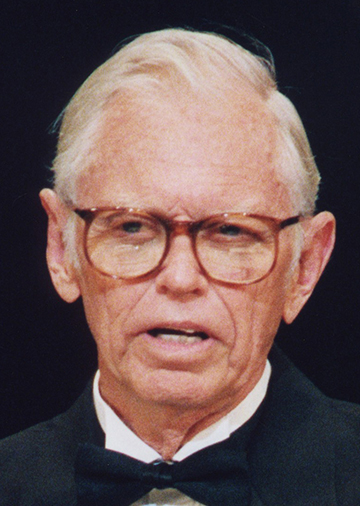

Professor of Information and Computer Sciences, University of Hawaii at Manoa
Dr. Peterson made extremely important contributions to the progress of digital technology by establishing the fundamental theory for error-correcting and error-detecting codes that are indispensable for reliable digital communication, digital broadcasting, and data storage systems.
The 1961 publication of Error-Correcting Codes is regarded as the birth of algebraic coding theory, the fundamental theory for error-correcting codes. Dr. Peterson, in authoring this text, standardized terminology and notations for representing error-correcting codes and established the framework of algebraic coding theory on the basis of modern algebra, which has guided the development of the theory for encoding and decoding of error-correcting codes and their implementations.
This "bible" for coding theorists was translated into various languages and established Dr. Peterson as the "founder of algebraic coding theory."
The introduction of modern algebra into electrical engineering and computer science curricula is mostly the result of Dr. Peterson’s book. Prior to its appearance, engineers had little interest in modern algebra. His book changed all that by showing that this was precisely the right theory needed for the very practical development of error-correcting codes. Modern algebra is now considered a basic subject for coding theory, cryptology, and the theory of finite-state machines.
The contents of his book are based on his many original research works, of which the most important are: cyclic redundancy check (CRC) codes for error detection, first algorithm for decoding BCH codes, and encoding and decoding circuits based on shift registers. CRC codes for detection of errors are used in most digital communication systems and all computer diskettes. At one time they were used on all computer disk systems, but recently they have been supplanted by more sophisticated error detection and error correction systems based on the algebraic concepts that originated with Dr. Peterson's work. Dr. Peterson invented the first practical decoding algorithm for the class of Bose-Chaudhuri-Hocquenghem codes, which includes the important subclass of Reed-Solomon codes that are in widespread practical use today for error correction in compact disk drives and other digital systems. He also invented practical logical circuits, based on linear shift-registers, for error detection and correction. These inventions are exceptionally important contributions to the industrial applications of error-correcting codes.
His research results contributed significantly to today's reliable digital communications, digital broadcasting, and data storage. For his great achievements in science and technology, Dr. Peterson is truly qualified as a Japan Prize Laureate.